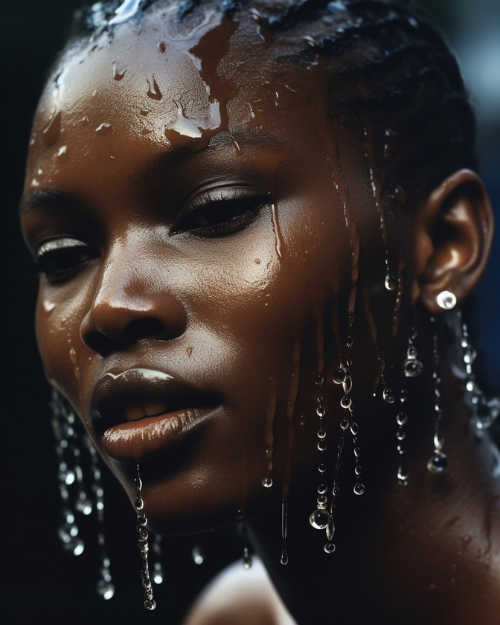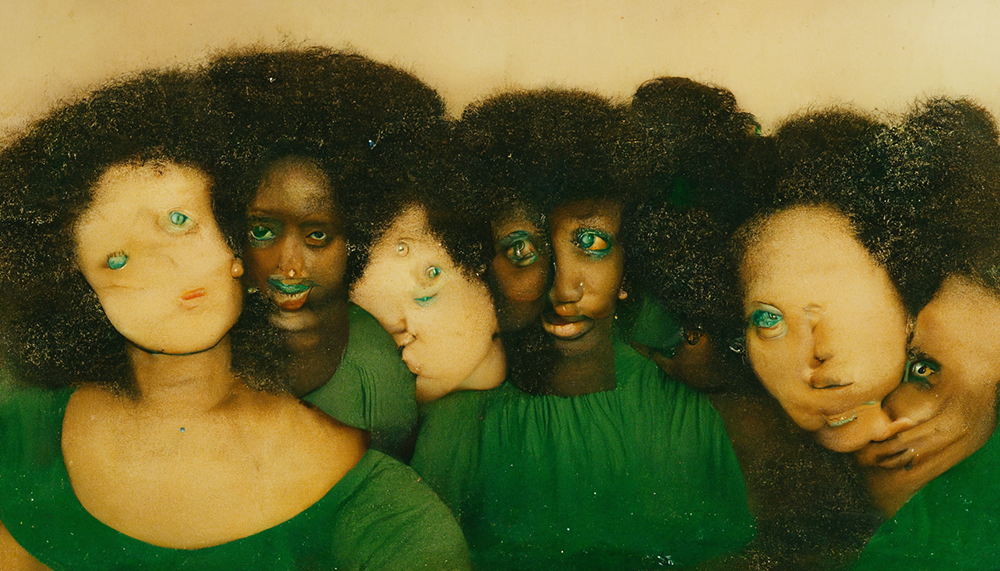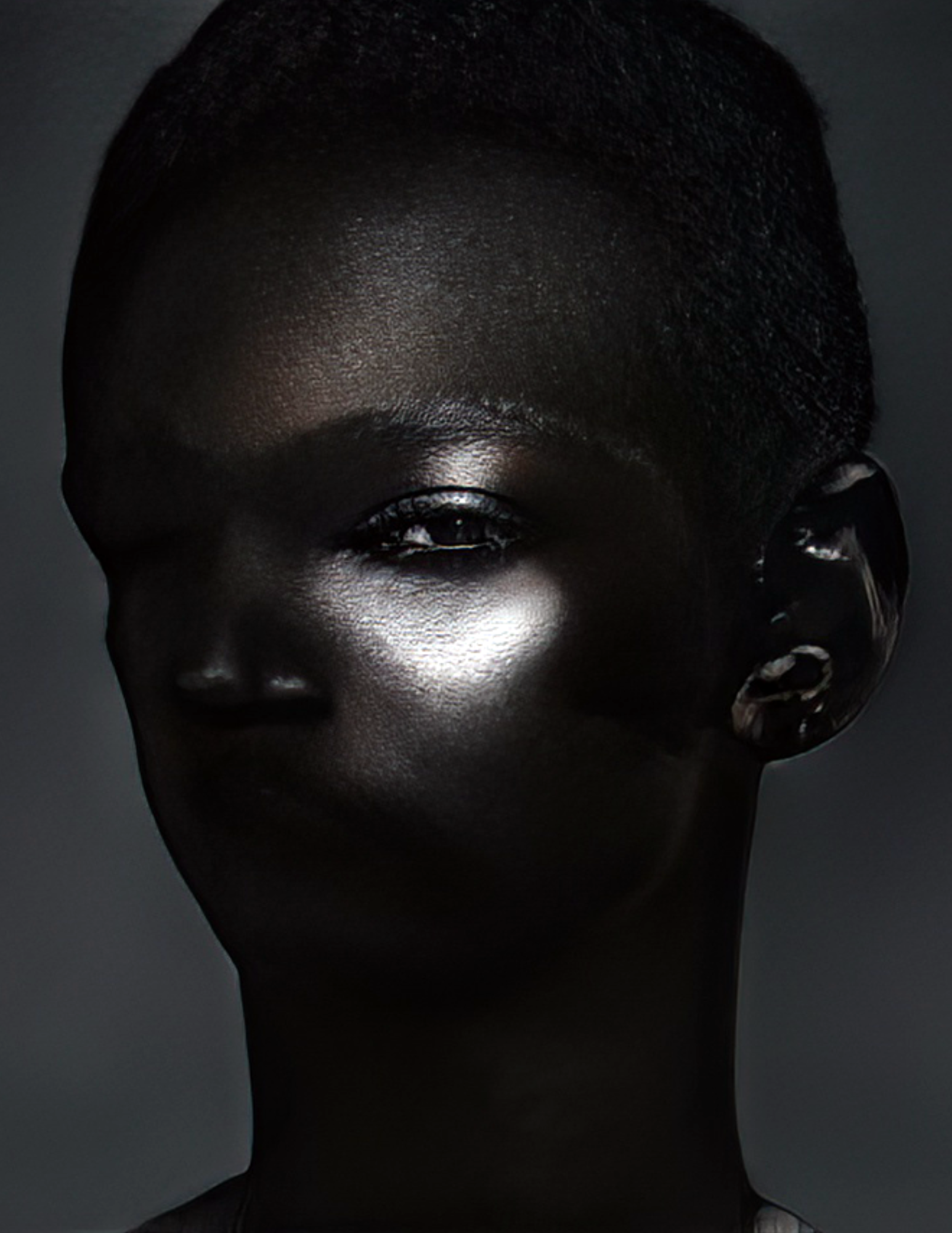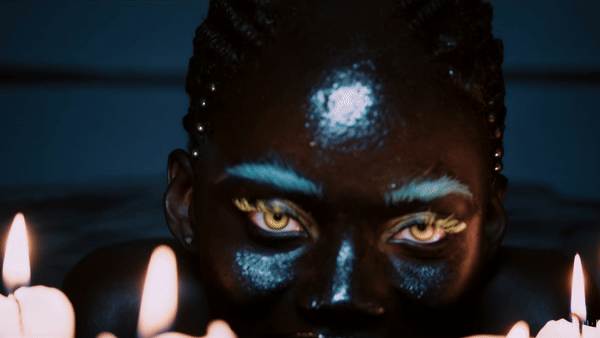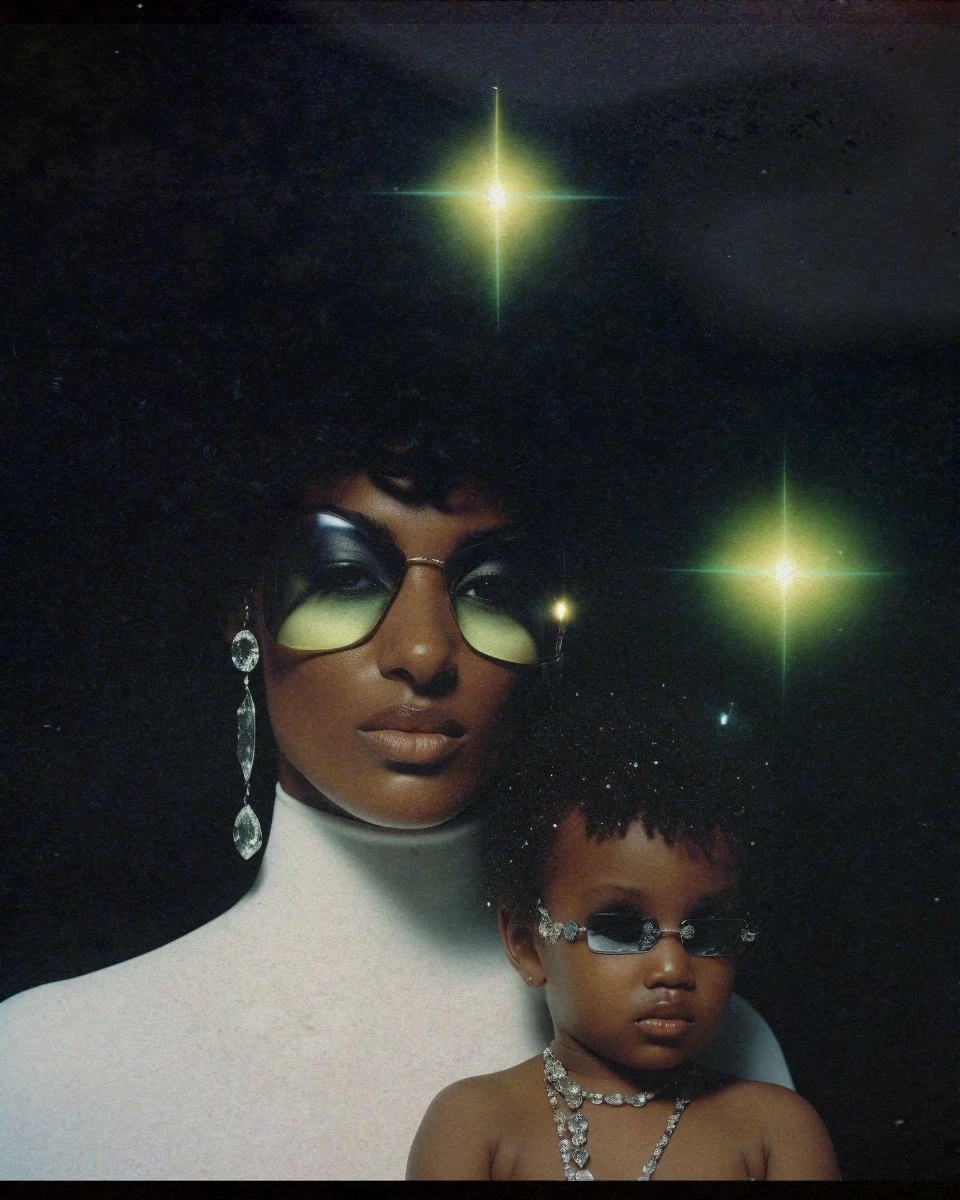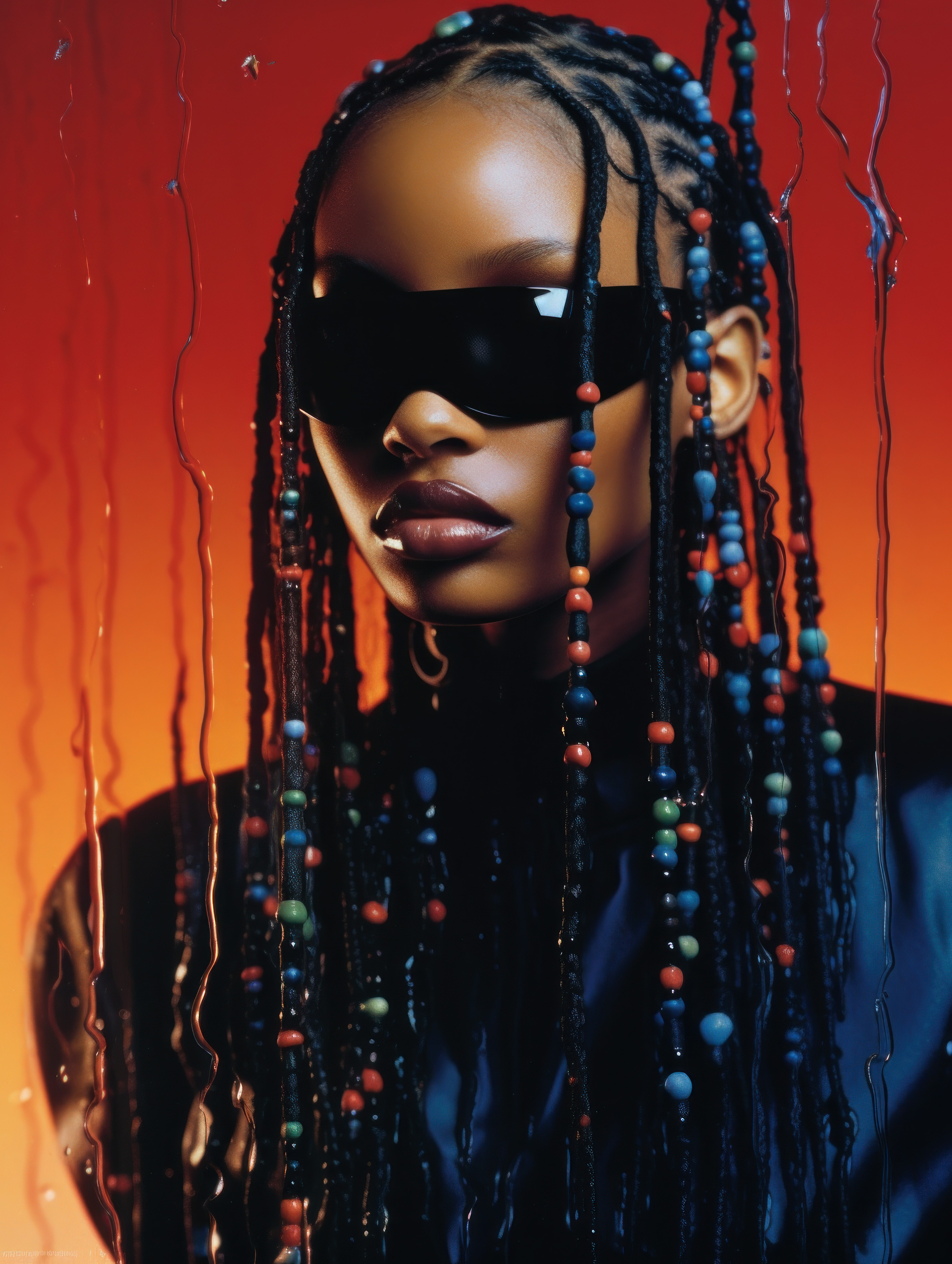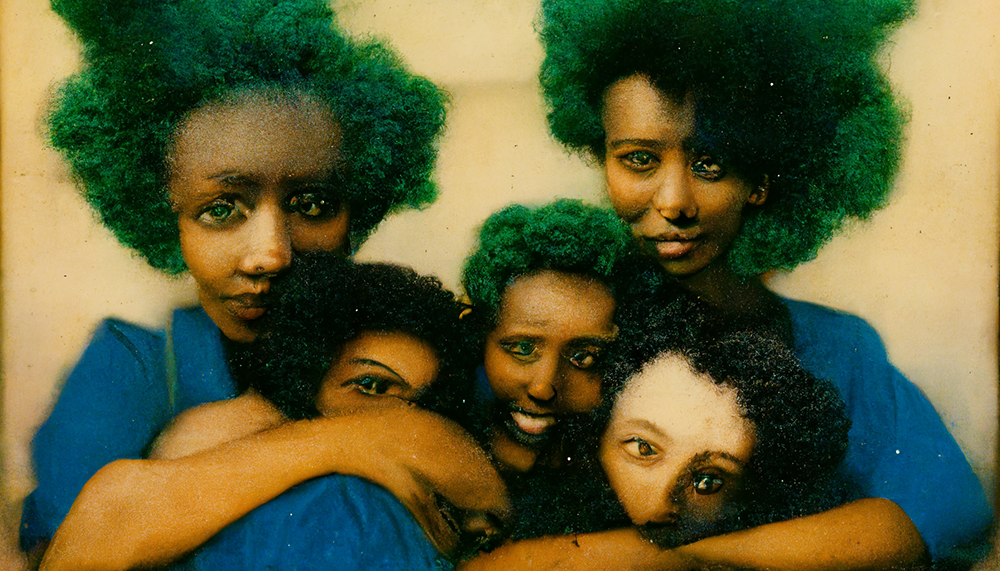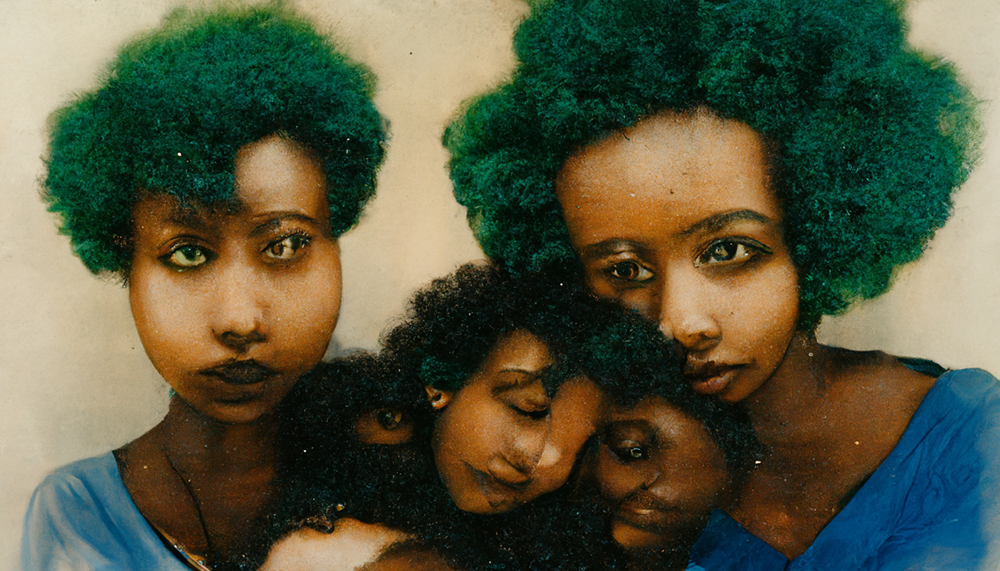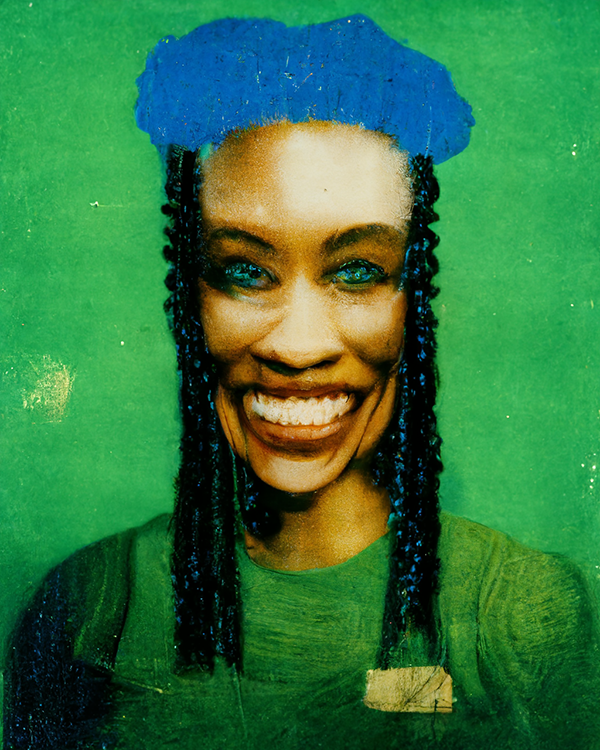MEDIA: COPPER- AND BRONZE- INFUSED FILAMENT, STAINLESS STEEL
C0MMISSIONED BY: MUSEUM DE FUNDATIE, ZWOLLE
ON VIEW: FEBRUARY, 2026 @ MUSEUM DE FUNDATIE, ZWOLLE
MODELS: SORA-1, SORA-2, VEO-2, VEO-3
TWO-CHANNEL VIDEO: 6 MINUTES
C0MMISSIONED BY: MUSEUM DE FUNDATIE, ZWOLLE
The Sky Kings ( Acts I-II ) is a supernatural horror film that imagines a future in which aerospace engineers draw inspiration from the Sky Kings of ancient Benin. The term Sky Kings translates the Benin word Ogiso , a title once borne by the kingdom’s earliest rulers, who are mythologically understood to have descended from the cosmos. The Ogisos ruled Igodomigodo (later known as the Benin Empire) from 600-1000 A.D.
In this work, I invoke the Sky Kings specifically in reference to Ogiso Emose and Ogiso Orhorho the only women documented to have held the Ogiso title , and to have ever ruled Benin. No woman has ascended the Benin throne since the end of Orhorho’s reign in 1030 A.D.
MODEL: RODIN DIFFUSION, GPT-IMAGE-1
MEDIA: COPPER-INFUSED FILAMENT, STAINLESS STEEL
C0MMISSIONED BY: MUSEUM DE FUNDATIE, ZWOLLE
Artificial Idia (AI), v1.0.1 is an attempt to reimagine a 16th-century ivory mask of Iyoba (Queen) Idia of Benin Kingdom through image- and 3D-synthesis. Across a multi-stage pipeline, I purposefully abstract and devolve the original form into an artificial variant. The final piece is materialized via an unpolished, copper-infused filament.
This work is based on a repatriated mask of Iyoba Idia, formerly held at the Linden-Museum Stuttgart, and one of four known looted masks of Iyoba Idia.
MODEL: IMAGEN-3
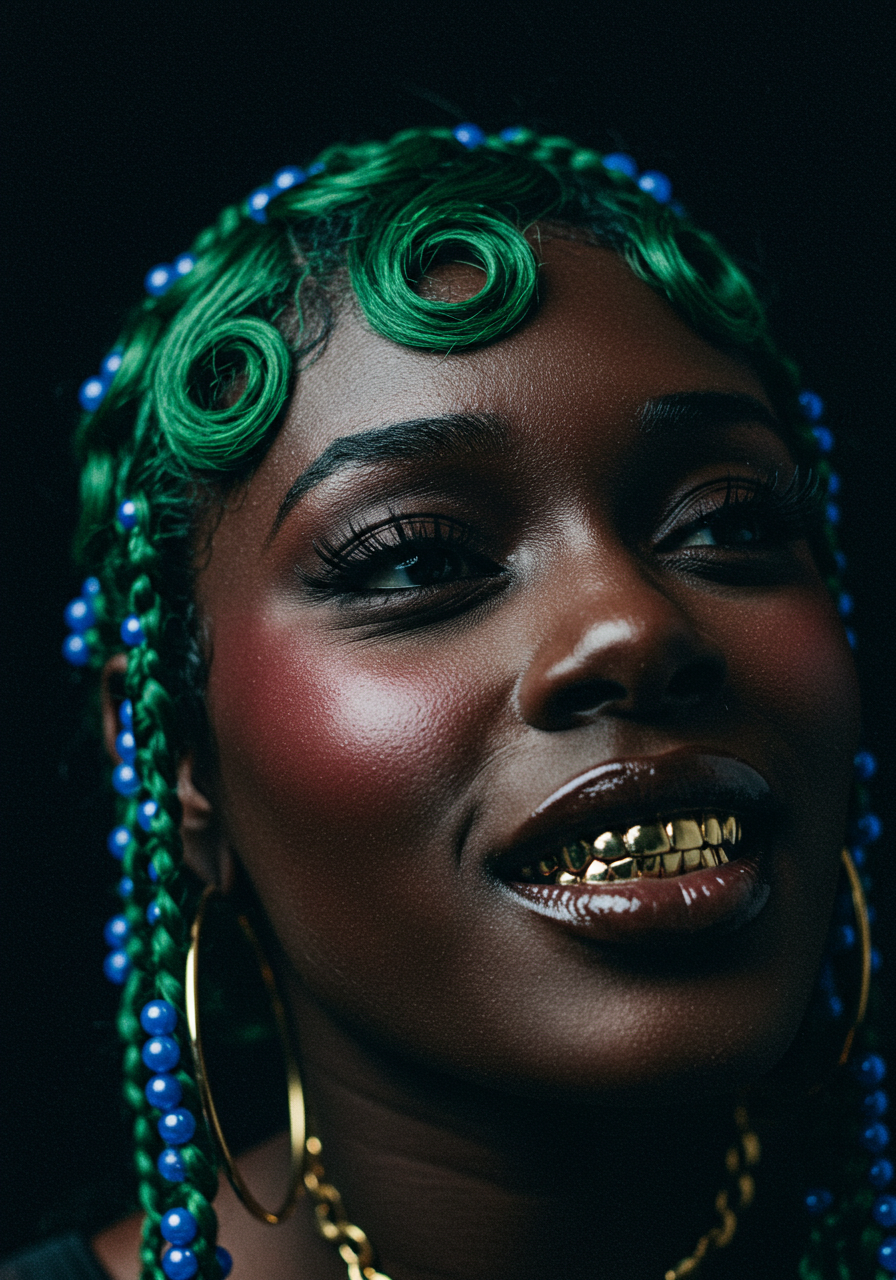
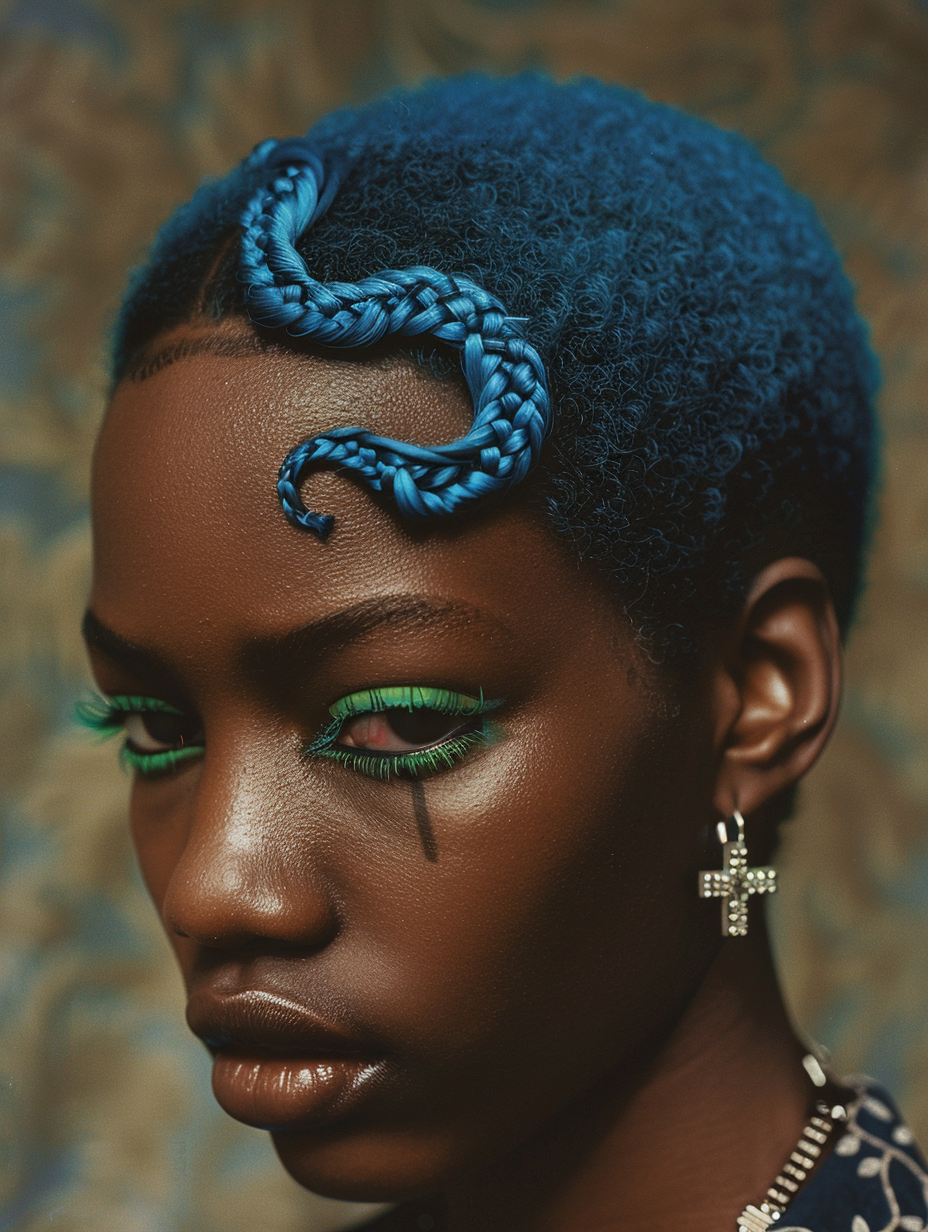
VIDEO MODEL: SORA-1
AUDIO MODEL: MUSICFX
SINGLE CHANNEL: 1 MINUTE 37 SECONDS
Regina Gloriana (2024) draws inspiration from two supernatural horror films produced in 1990s Nollywood (Nigeria’s cinema)—Nneka, the Pretty Serpent (1994) and Karishika (1996). Using text-based prompts in SORA, I reinterpret the visual effects that these films deployed to animate Mami Wata—a femme-presenting, amphibious, and shape-shifting West African God—as a terrifying figure. These 90s evangelical films not only sought to dissuade Mami Wata devotion but also arbitrated Pentecostal-Christian values through uncanny VFX that continues to haunt my imagination. For this reason, I have yet to watch the 2020 sequel of Nneka, the Pretty Serpent.
- 2024Strada Nuova: New Road , STRADA X OpenAI
EXHIBITIONS

MODEL: MIDJOURNEY (V5, V6)
Melanin-rich medieval depictions of the Virgin Mary and Child Christ (also known as Black Madonna,
12C-15C) have
ignited centuries of scholarly speculation. Did medieval, European artists delibrately depict
Madonnas of
African-descent? Did St. Luke paint the Black Madonna of
Częstochowa during the Virgin Mary's lifetime? From a live painting
session? And if so, is St. Luke's
Madonna a faithful representation of the Virgin Mary's racial heritage?
Various theories have been proposed to explain the Black Madonna's complexion, from the technical—
oxidation of silver-based pigments, smoke damage
from the burning of votive candles and incense, material degradation—to interpretations anchored in
biblical text, notably the Songs of Solomon (1:5-6), which celebrates the beauty of Blackness: "I am Black
but beautiful, O ye daughters of Jerusalem, as the tents of Kedar, as the curtains of Solomon. Do not gaze
at me because I am dark, because the sun has looked upon me." This perspective stands in stark contrast to
interpretations that equate darkness with sin, as expressed in 1 John 1:5: "God is light, and in Him there
is no darkness at all."
Departing from these theories of "unintentional Blackness", my AI-generated portraits intentionally
celebrate the Black Madonna as an
unmistakably, unquestionably, unambiguously Black divinity.
- 2024AI for Inclusive and Sustainable Futures, République Française
- Honegan, A. D. (2024). The Platytéra and Pietà: Black Visual Biblical Allegory in Mark Doox’s Our Lady, Mother of Ferguson and All Those Killed by Gun Violence (2016). Black Theology, 1-25.
- Cleveland, C. (2022). God is a Black woman.
EXHIBITIONS
REFERENCES
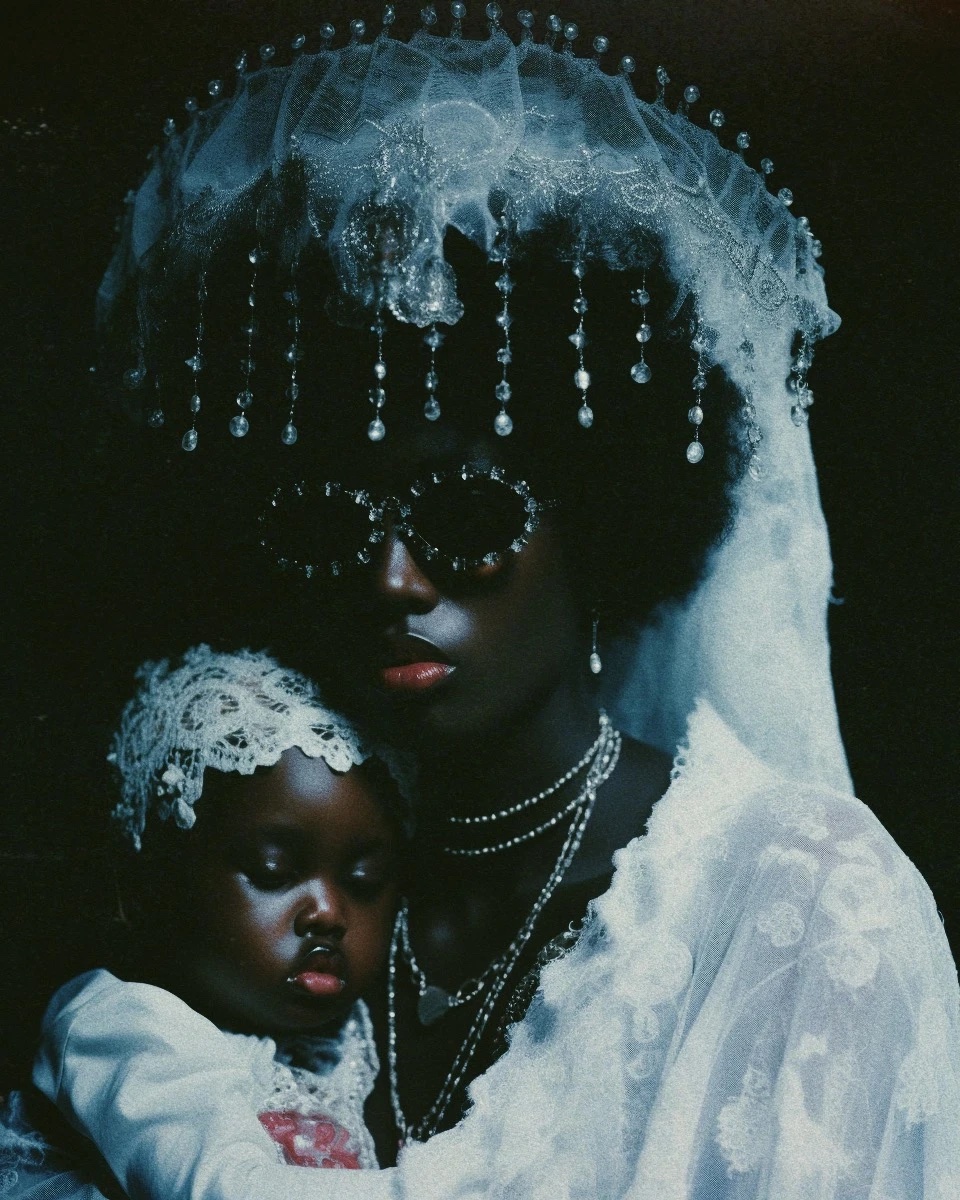
MODEL: MIDJOURNEY (V5.1)
Beaded Braids Study examines how Midjourney (v 5.1) visualizes bead embellishments on braided Black hair. The text prompt includes visual cues from the bold, unapologetic hair and make-up worn by the legendary Kalakuta Queens—a collective of 27 performers and wives of the celebrated Nigerian musician and political activist, Fela Kuti.
The series uncovers how Midjourney (v 5.1) invokes associations between beaded Black hairstyles and Western, colonial conceptions of African indigeneity—the antithesis of the modern imagination, and perhaps, its distorted reflection. The resulting AI-generated images often reflect colonial fantasies of the African woman: "uncivilized," "unmodernized," "unclothed," living outdoors, and adorned with bead-like embellishments.
- 2024Ground State – Fellowship within the Uncanny, Lagos Photo Festival
EXHIBITIONS
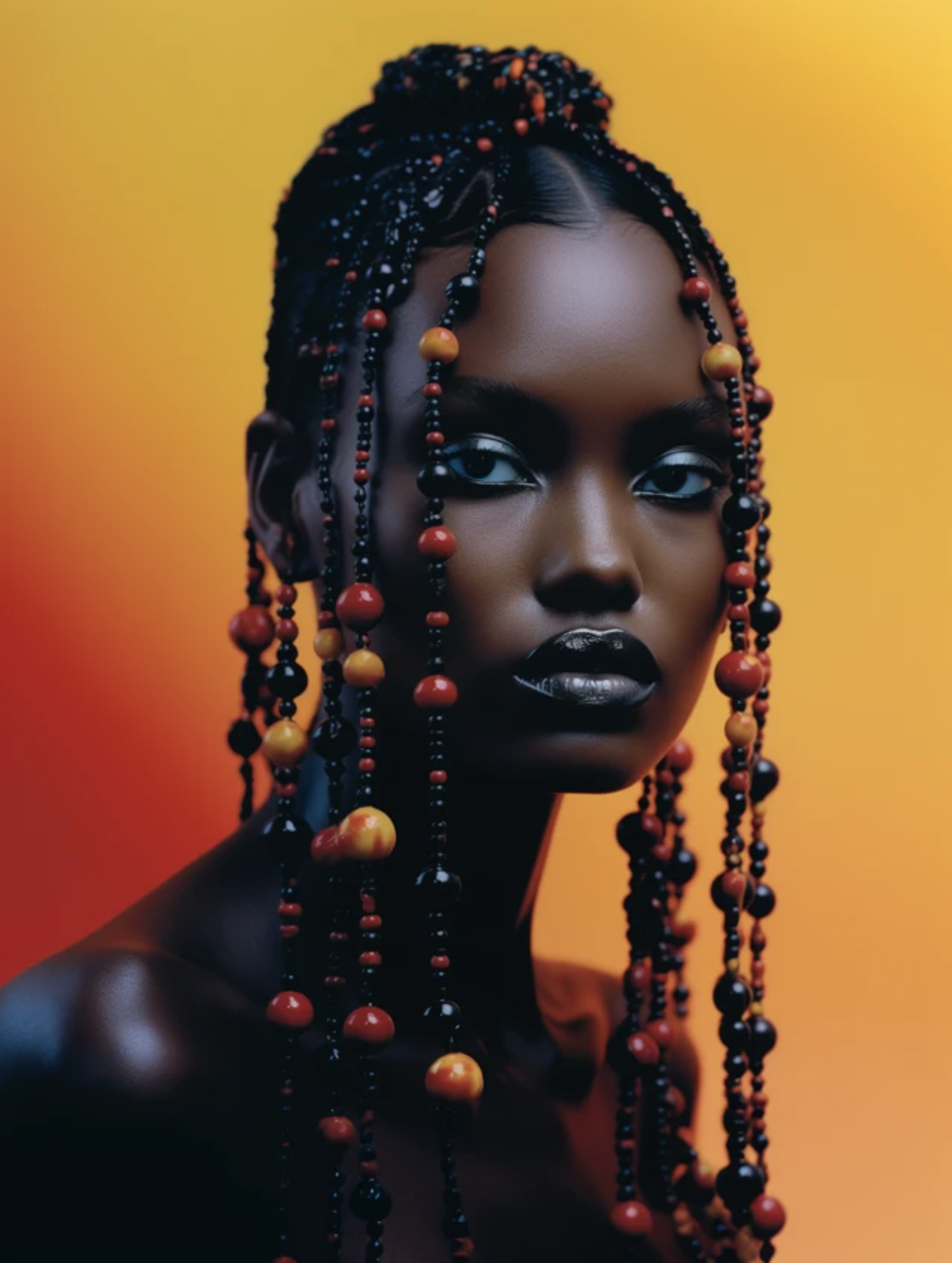
MODEL: MIDJOURNEY (V5)
In Nigeria's Niger Delta region, all bodies of water are revered as sacred dwelling for Mami Wata—a
femme-presenting, amphibious, metamorphic God whose influence spans fertility, wealth, and healing.
Traditionally, artistic depictions of Mami Wata have
aimed to capture the entity’s enigmatic nature, manifesting in various forms—a mermaid with non-African
traits, “pseudo-Hindu snake charmer”, “human-fish goat-priestess”, mudfish, among other
manifestations.
These AI-generated portraits, however, take a different approach by drawing inspiration from
Nigerian folktales (Ogboro-Cole, 2015) that depict Mami Wata exclusively in human form. In these
narratives, Mami Wata often
assumes the role of a femme fatale or a benevolent stranger, intriguing and beguiling in equal measure.
- 2024Small Vo1ce, Honor Fraser Gallery
- 2023Ground State – Fellowship within the Uncanny, Lagos Photo Festival
- 2023Electronic Cafe, The School for Poetic Computation
- Ojaide, T. (2021). Toward a bioregional, politico-historical, and sociocultural identity of the Niger Delta. In The Literature and Arts of the Niger Delta (pp. 13-22). Routledge.
- Ogboro-Cole, O. (2015). Mami Wata: Short Stories in Nigerian Pidgin English (Vol. 7). ATHENA-Verlag.
EXHIBITIONS
REFERENCES

